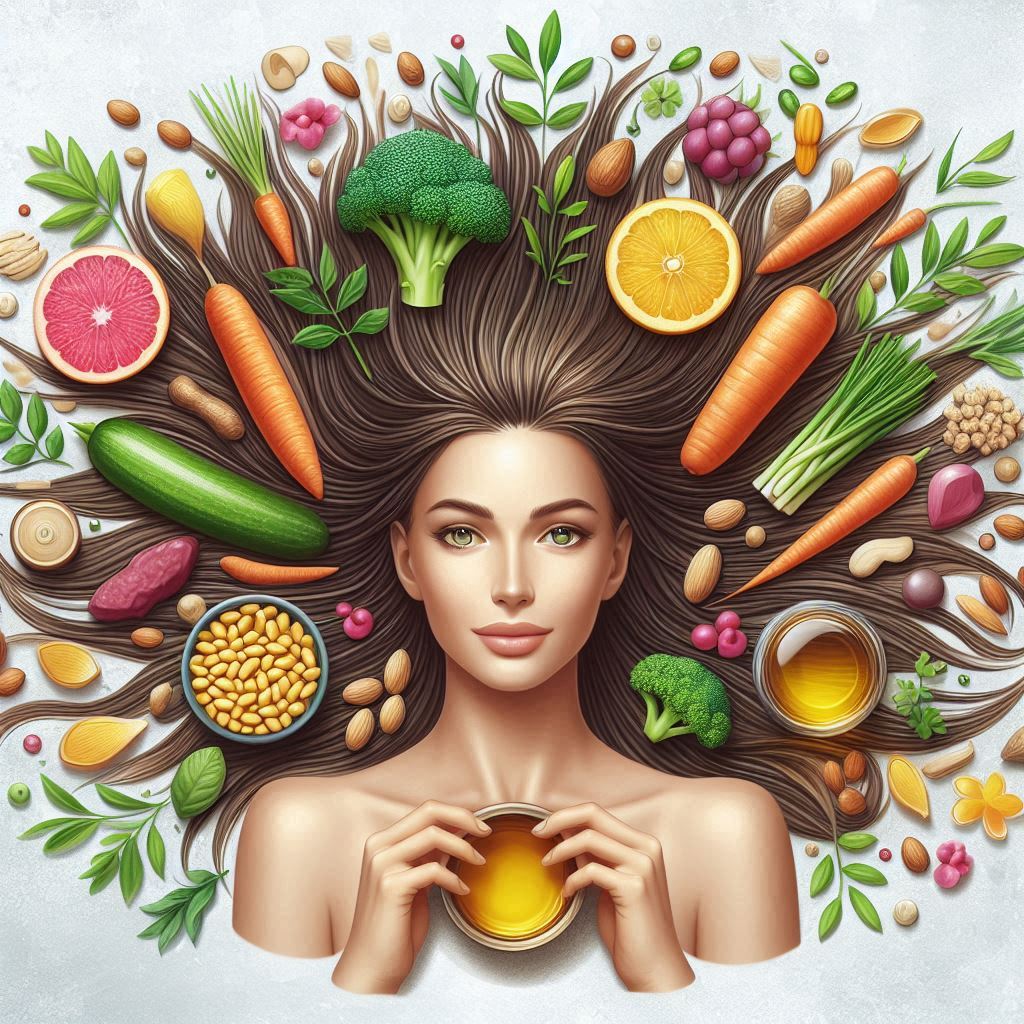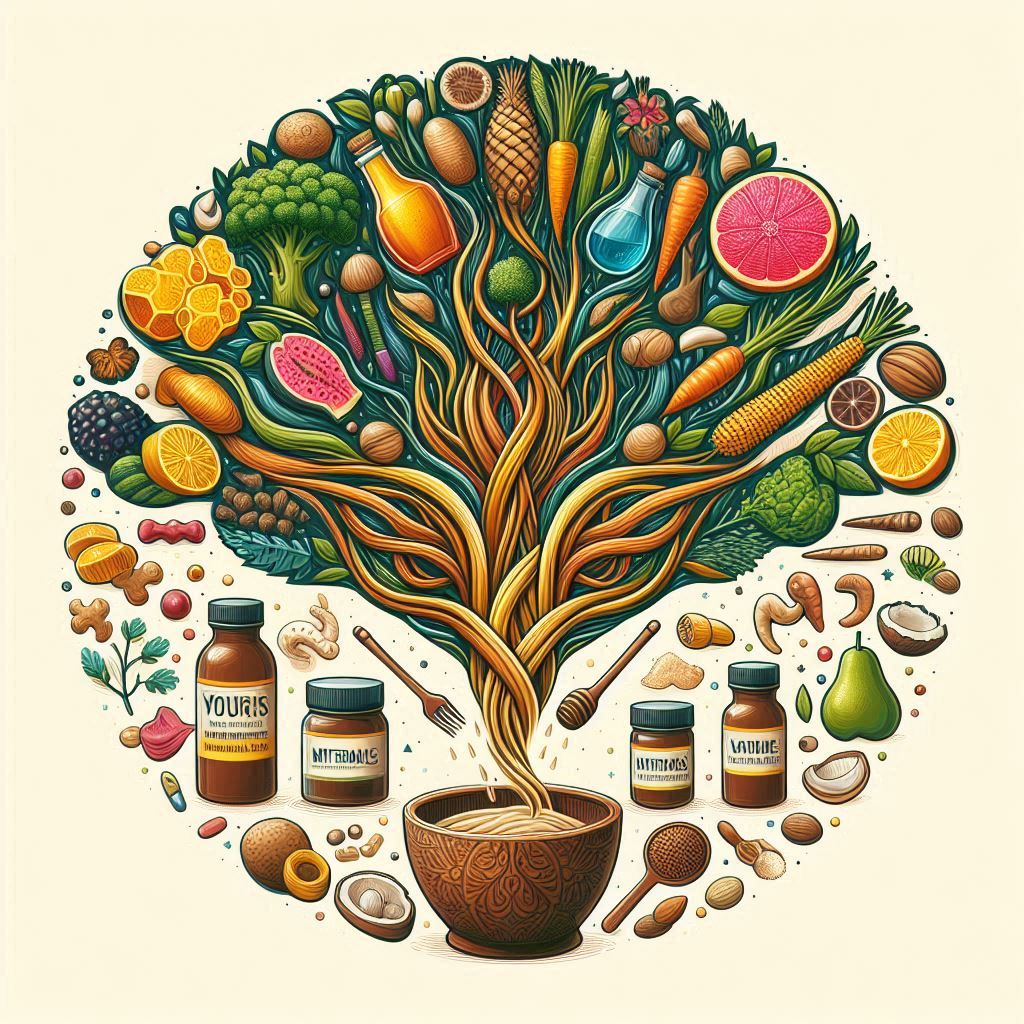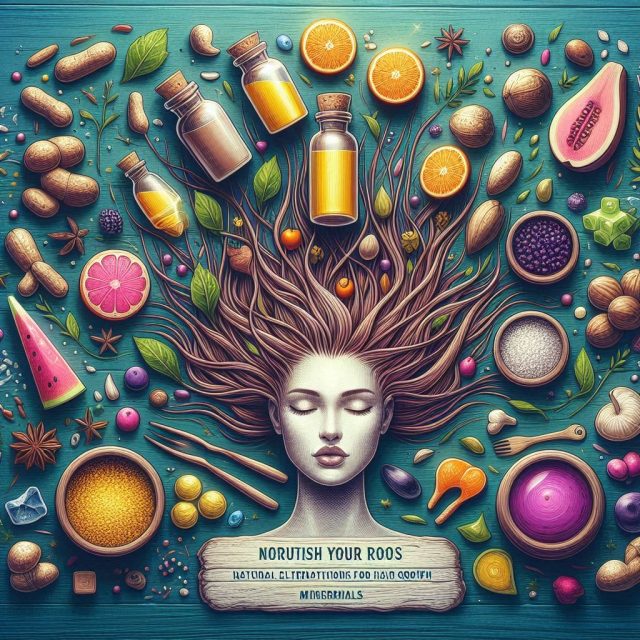Longing for luscious, healthy hair? While supplements can be an option, nature provides a bounty of delicious and readily available foods packed with the essential vitamins and minerals that can support strong and vibrant hair growth.
This guide explores natural alternatives to common hair growth supplements, making it easy to incorporate these power foods into your daily diet.

Vitamin A: Essential for cell growth and differentiation, including hair follicles.
- Natural Sources: Mangoes, carrots, kale, sweet potatoes.
B1 (Thiamine): Plays a role in energy metabolism, which is crucial for hair growth.
- Natural Sources: Whole grains, lentils, peas.
B2 (Riboflavin): Important for cell function and energy production.
- Natural Sources: Almonds, spinach, mushrooms.
B3 (Niacin): Helps improve blood circulation to the scalp, delivering vital nutrients to hair follicles.
- Natural Sources: Peanuts, sunflower seeds, tomatoes.
B5 (Pantothenic Acid): Contributes to healthy hair and may help prevent hair loss.
- Natural Sources: Broccoli, avocados, sweet potatoes.
B6 (Pyridoxine): Involved in protein metabolism, necessary for hair structure.
- Natural Sources: Pistachios, potatoes, bananas.
B7 (Biotin): Often touted for its hair growth benefits, biotin supports keratin production, the main protein in hair.
- Natural Sources: Kale, strawberries, cucumber.
B12 (Cobalamin): Crucial for red blood cell formation, which carries oxygen to the scalp and hair follicles.
- Natural Sources: Eggs, oysters, salmon.
Vitamin C: An antioxidant that helps protect hair follicles from damage and aids in collagen production, important for hair strength.
- Natural Sources: Papaya, bell peppers, pineapple.
Vitamin D3: Plays a role in hair follicle cycling.
- Natural Sources: Salmon, mackerel, egg yolks. (Sunlight is also a primary source).
Vitamin E: Another powerful antioxidant that supports a healthy scalp and hair.
- Natural Sources: Spinach, almonds, bell peppers.

Trump’s Plans to Lift Sanctions on Syria: A New Era for Middle East Relations
MSM (Methylsulfonylmethane/Sulfur): A compound that may strengthen hair bonds.
- Natural Sources: Cabbage, Brussels sprouts, bok choy.
Calcium: Essential for many bodily functions, including hormone regulation which can impact hair growth.
- Natural Sources: Yogurt, tofu, kale.
Folic Acid (Vitamin B9): Important for cell division and growth.
- Natural Sources: Asparagus, oranges, beets.
Iron: Carries oxygen to the hair follicles; deficiency can lead to hair loss.
- Natural Sources: Spinach, soybeans, pumpkin seeds.
Iodine: Essential for thyroid hormone production, which influences hair growth.
- Natural Sources: Eggs, milk, strawberries.
Zinc: Involved in hair tissue growth and repair.
- Natural Sources: Pumpkin seeds, chickpeas, cashews.
Manganese: An antioxidant that plays a role in enzyme activity.
- Natural Sources: Spinach, pineapple, whole grains.
Choline: A nutrient that is part of cell membranes.
- Natural Sources: Cauliflower, broccoli, eggs.
Inositol: A carbohydrate that is part of cell membranes.
- Natural Sources: Oranges, cantaloupe, whole grains.
By incorporating a diverse range of these nutrient-rich foods into your diet, you can naturally support healthy hair growth from the inside out. Remember that consistency is key, and a balanced diet contributes not only to beautiful hair but also to overall well-being.
Disclaimer: While these natural sources can contribute to hair health, individual needs may vary. If you have significant hair loss or concerns, it’s always best to consult with a healthcare professional or a registered dietitian for personalized advice.



































